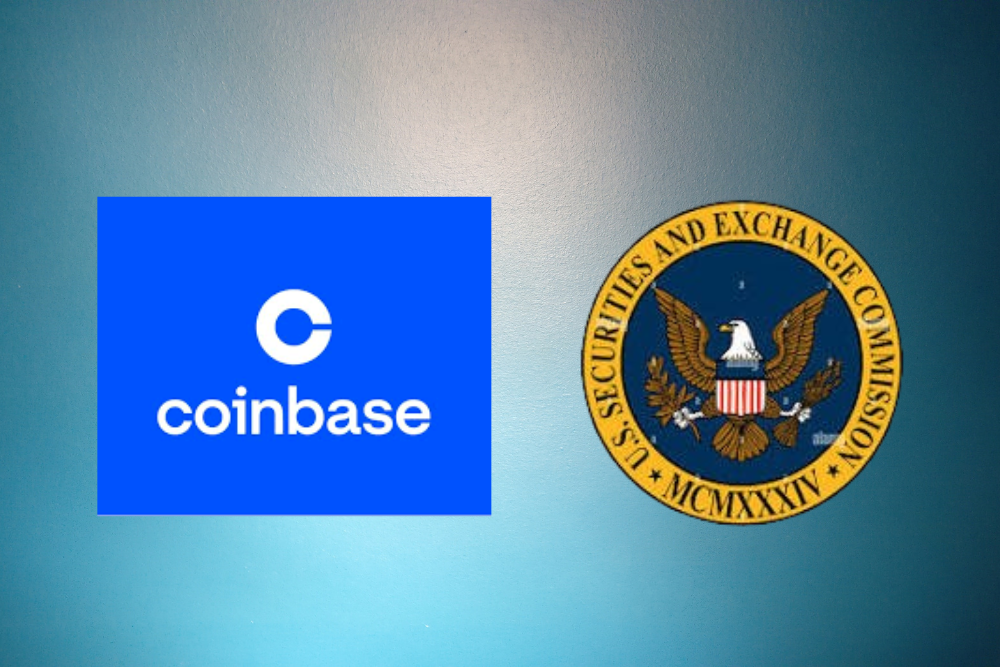Coinbase has achieved a significant milestone in its ongoing legal struggle with the Securities and Exchange Commission (SEC), as a federal judge has approved its request for an interlocutory appeal. This development could play a critical role in shaping the legal framework surrounding cryptocurrency regulation in the United States.
Judge Grants Interlocutory Appeal in Coinbase Case
Judge Katherine Polk Failla’s recent decision has opened the door for Coinbase to seek an interlocutory appeal in its ongoing legal battle with the SEC. By granting this request, the judge has paused proceedings in the district court, allowing the United States Court of Appeals for the Second Circuit to review specific legal questions raised by the case.
Paul Grewal, Coinbase’s Chief Legal Officer, took to social media to highlight this pivotal development. Expressing gratitude, Grewal commended the court’s recognition of the importance of this legal inquiry. The move underscores the broader implications of the case for the cryptocurrency industry.
Core Legal Question: Investment Contracts and Crypto Assets
The interlocutory appeal centers on a fundamental legal question: whether the definition of an investment contract necessitates the presence of a tangible, enforceable contract. This question is critical to how the Howey Test—a decades-old framework for determining what constitutes a security—applies to cryptocurrency assets.
Although Judge Failla critiqued Coinbase’s stance on the SEC’s regulatory framework for digital assets, she acknowledged the significance of this legal question. Coinbase’s appeal, originally filed in April 2024, addresses inconsistencies in rulings from various federal courts, reinforcing the need for appellate clarification.
Attorney Hogan’s Perspective
Jeremy Hogan, a respected voice in the crypto legal sphere, described the decision as a “big news in the legal crypto space.” He emphasized the rarity of district courts granting interlocutory appeals, highlighting the judge’s recognition that the issue demands higher judicial scrutiny.
Hogan also noted parallels between the Coinbase case and the ongoing Ripple appeal, which similarly grapples with whether the absence of a formal contract invalidates the classification of certain crypto assets as securities. This broader legal question is poised to shape the future of crypto regulation in the U.S.
Context from Ripple Case
It is worth recalling that in October 2024, a federal judge denied the SEC’s request for an interlocutory appeal in the Ripple case. This refusal further underscores the significance of Coinbase’s recent win, as it brings a contentious legal question directly into the appellate court’s purview.
The Road Ahead for Coinbase
Following Judge Failla’s decision, Coinbase will now formally file a notice of appeal with the Second Circuit Court of Appeals. If the Second Circuit accepts the case, Coinbase will submit its argument, asserting that the SEC’s allegations of federal securities law violations are unfounded. Simultaneously, the SEC will present its counterarguments, paving the way for the court to render a decisive ruling.
Once the appellate court issues its decision, the case will revert to Judge Failla’s court for further proceedings. However, the legal landscape may shift dramatically in the interim.
Potential Impact of Leadership Changes at the SEC
The outcome of Coinbase’s legal battle could be significantly influenced by impending changes at the SEC. With Paul Atkins, a known proponent of crypto innovation, slated to replace the current SEC chair Gary Gensler—a vocal critic of the industry—the regulatory approach to digital assets may become more lenient.
This leadership transition raises the possibility of an out-of-court settlement, potentially resolving the dispute that began in June 2023. Such a resolution could provide a much-needed precedent for balancing regulatory oversight with the innovative spirit of the cryptocurrency industry.
Daily Addaa earlier reported Coinbase’s strong start to the year as the exchange secured a pivotal legal victory over Federal Deposit Insurance Corporation (FDIC), this resulted to the release of letters from the Federal Deposit Insurance Corporation (FDIC) that shed light on an apparent concerted effort to suppress cryptocurrency activities.
The Coinbase-SEC lawsuit continues to be a defining case for the cryptocurrency sector, with Judge Failla’s decision to grant an interlocutory appeal marking a pivotal moment. As the case progresses to the appellate stage, it has the potential to clarify critical legal questions, influence regulatory policy, and set new standards for how digital assets are treated under U.S. securities law.
Disclaimer: This content is meant to inform and should not be considered financial advice. The views expressed in this article may include the author’s personal opinions and do not represent Daily Addaa’s opinion. Readers are urged to do in-depth research before making any investment decisions. Any action taken by the reader is strictly at their own risk. Daily Addaa is not responsible for any financial losses.
